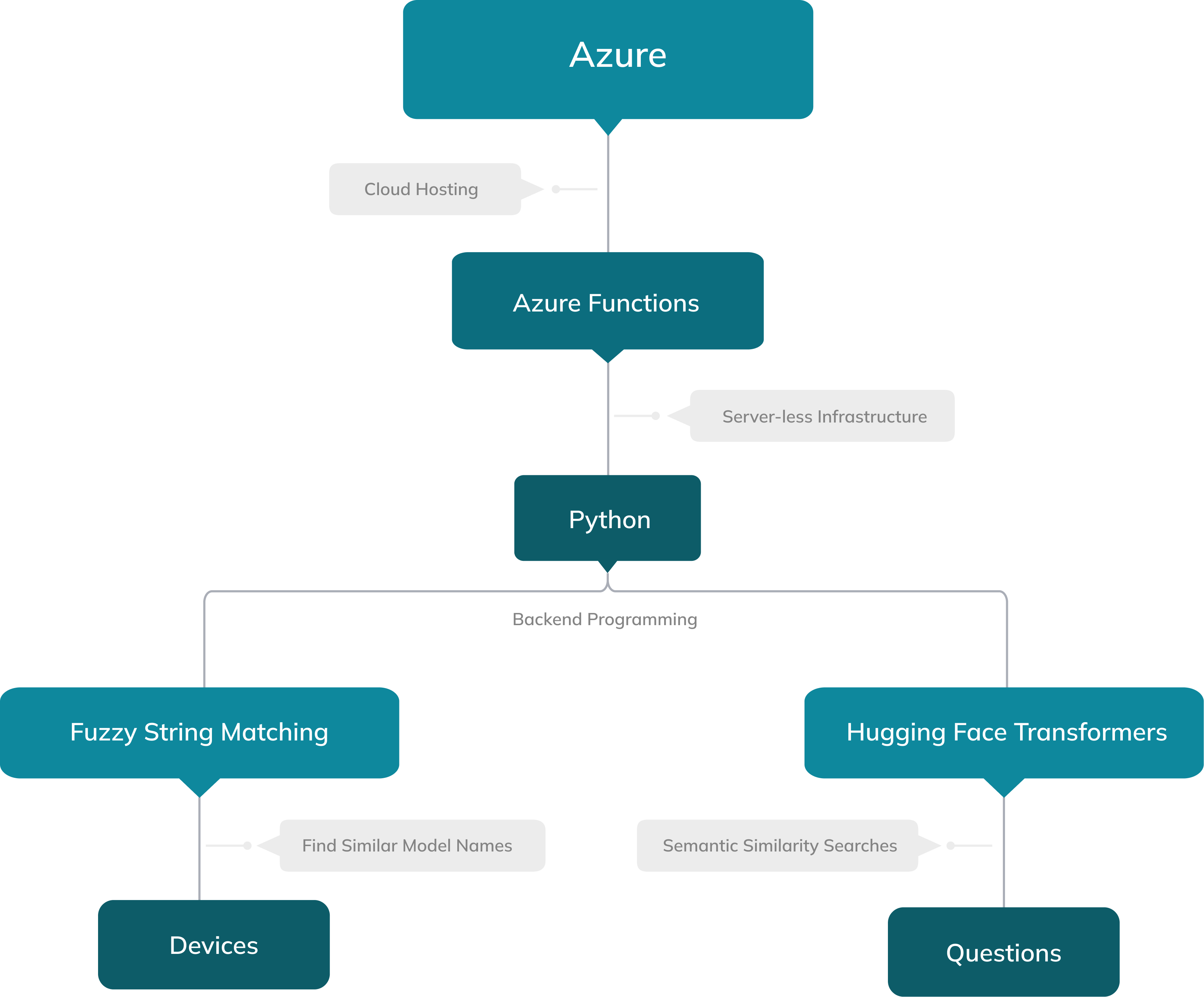Enhancing Cybersecurity in Medical Devices: NovaLeah's AI/ML Driven Solutions

Introduction
NovaLeah stands as a beacon in the cybersecurity landscape, particularly within the realm of medical devices.
Their primary objective revolves around delivering formidable cybersecurity defenses for medical devices, shielding them from any looming cyber threats.
To amplify their innovative endeavors, NovaLeah teamed up with our team to conceive an AI/ML-driven software tool.
Project Overview and Challenge
The project bifurcated into two primary segments: MDS2 and MDS+. While MDS2 was sculpted to guide medical device manufacturers through the intricate maze of the Manufacturer Disclosure Statement for Medical Device Security (MDS2) questionnaire, MDS+ was tailored to assist medical device buyers in devising custom questionnaires for manufacturers.

Technology Stack
- .Net Core
- Azure Functions
- Razor
- Miroservices
- Azure Data factory
- Azure SQL
- Azure containers
- Product Strategy
- Software Architecture, Analysis and Design
- UI / UX Design
- Born in the Cloud Software Stack
- Full Life-Cycle Application Development
- API Automation
One significant hurdle was the intricate nature of these questionnaires. Typically overflowing with hundreds of queries, these questionnaires demand an in-depth comprehension of the device’s safety and cybersecurity attributes.
It’s imperative that the answers remain accurate and uniform since they play a pivotal role in maintaining device safety and security. Manual completion of these questionnaires not only consumes substantial time but also invites potential discrepancies.
AI/ML Solutions and Techniques
To counter these dilemmas, our team harnessed the power of AI/ML to formulate a solution that offers insights and proposes suitable answers, ensuring a seamless and standardized approach to these questionnaires.
For the MDS2 component, the application integrates Fuzzy string matching – an AI methodology that gauges the resemblance between disparate strings.
This capability enables the software to correlate the subject device with analogous ones, leveraging previously completed questionnaires. Depending on historical data, the software autonomously responds to these questions or offers suggestions influenced by past inputs from manufacturers of akin devices.
In the MDS+ realm, the software incorporates a finely tuned semantic similarity model, notably distil-Roberta from Hugging Face Transformers. This equips buyers with the prowess to scout for questions that resonate with their requirements, thus refining their custom questionnaire creation process.

Technical Implementation
The software found its foundation in Azure Functions, a serverless computing service optimized for auto-scaling and judicious resource administration.
The MDS2 and MDS+ segments hinged on a collective of nine distinct micro-services, each architecturally designed for specific roles, encompassing device or question searches, questionnaire drafting and reviewing, as well as recommending or integrating answers.

Our team employed a No-SQL database server at the backend to cater to the unstructured data characteristic of NLP ventures. The database architecture was meticulously laid out with unique keys, facilitating rapid and accurate content retrieval.
To tackle the prevalent ‘cold start’ conundrum synonymous with serverless designs, varied session-state management instruments were integrated to offset potential product lags.
The AI/ML models were finely tailored to resonate with the serverless environment’s parameters, ensuring compactness without forfeiting their operational edge. These models were conceptualized to be stateless, aligning seamlessly with the serverless blueprint, and any requisite state-related data was securely ensconced within the database.
In essence, this project’s technical rollout epitomizes a harmonious blend of avant-garde AI/ML strategies, agile software structure, and inventive resolution methodologies.
Conclusion
NovaLeah’s collaboration with our team bore fruit in the form of a pioneering AI/ML application, substantially streamlining the questionnaire generation and resolution process for stakeholders in the medical device domain.
Despite the array of technical hurdles, the project triumphed, harnessing cutting-edge AI/ML strategies and a serverless framework to forge a potent and streamlined solution. Such endeavors reinforce NovaLeah’s unwavering dedication to assimilating progressive tech solutions to bolster cybersecurity within the medical device niche.
